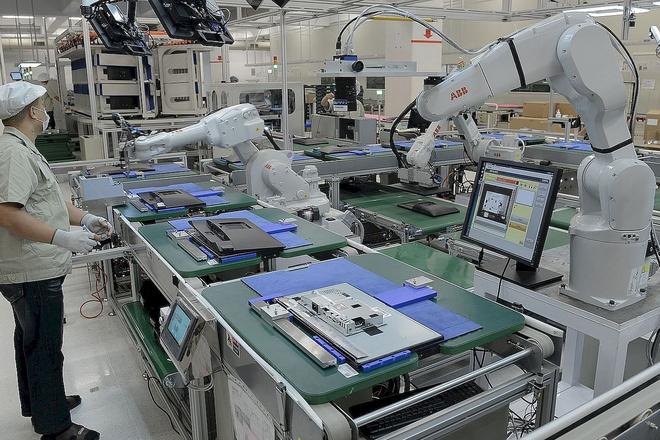Robotisation will change the labour market in Slovakia in the following years. It is expected that they will replace about one-third of current jobs, according to Lenka Buchláková, analyst with Slovenská Sporiteľňa bank.
The production and sale of industrial robots increased by 114 percent between 2013 and 2017, and is expected to rise by further 14 percent until 2021. As a result, more than 600,000 robots a year will be produced that year, as stems from the data of the International Federation of Robotics.
While the robotisation will impact the countries in the north the least, central and eastern Europe belongs among the most endangered regions, because unlike Scandinavian countries, there are many low-qualified jobs. The least endangered are countries that have more highly educated people and more jobs in services, which are more urbanised, according to Buchláková.
“In Slovakia, the most endangered positions are in the west,” Buchláková said, as quoted in the press release. “This represents 40 percent of the current jobs.”
Low-qualified jobs to be replaced with more sophisticated ones

However, the Organisation for Economic Cooperation and Development (OECD) does not expect the situation on the labour market to be critical for people. On the contrary, robotisation should support the creation of more jobs. While low-qualified positions will be reduced, more sophisticated jobs are expected to be created.
However, it will be necessary to requalify employees expected to work in them. This includes the operation of robots.
“There are several studies on this topic,” Buchláková said.
While one says that about 14 contemporary positions should be replaced by robotisation, the other suggests that it will impact up to one half of current employees, she added.
IT skills will be needed
Experts say that how countries will prepare for the robotization will be important. The digital revolution, which concerns mostly the ICT sector, has resulted in the creation of 4 out of 10 new jobs in the past decade.

It is expected that companies will require their employees to have certain computer skills in the following years. More than 50 percent in 28 OECD countries, including Slovakia, only have basic skills. This includes receiving and sending emails as well as searching for information online, as the organisation wrote in its recent survey.
“This will not be enough in the following years,” Buchláková said, adding that it will be more important to have higher skills, including programming ones. “Computers will be used to manage various databases, carry out analytical tasks and diagnostics.”



 Electronics industry (source: ABB)
Electronics industry (source: ABB)
 (source: OECD, International Federation of Robotics (until 2017: concrete results, after 2018: prediction))
(source: OECD, International Federation of Robotics (until 2017: concrete results, after 2018: prediction))